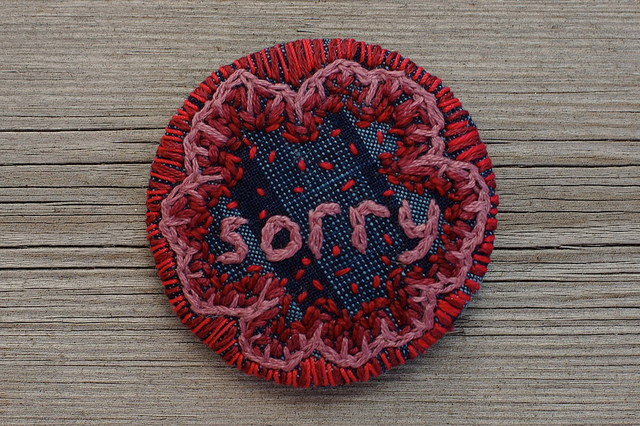“I’m sorry if that hurts you.”
“I’m sorry if that offends you,”
“I’m sorry for crying.”
“I’m sorry for being angry.”
If you are anything like me, you’ve said those things above or something just like it. You have found yourself expressing how “sorry” you are for speaking up for yourself, for expressing your feelings, for speaking your truth, for feeling your emotions and for showing something other that the perfect persona you have cultivated.
These types of “sorry” are nothing more than an apology for being who you are. So many women are taught from a young age to be nice, be the good girl, to hide the things that make us different and special and to be what people think we should be. We learn to play the game—we hide our feelings, we mask our sadness with a smile, we cry our tears in private then fix our mascara and go back to the party. We quiet the inner voice because we are told to be pleasant, happy, kind, soft, and gentle.
We go to our boss with “sorry for bothering you,” and we deal with conflict by saying “sorry if I hurt your feelings,” We apologize if we cry because tears make people uncomfortable. We bite back our rage and if it comes out, we are “sorry” for expressing it.
And you know what?
I’m done being sorry.
I’m done feeling like I shouldn’t speak my truth because it might make someone feel bad.
I’m done not allowing the full expression of who I am because my tears might make someone uncomfortable.
I’m done being “sorry” for asking for what I need.
I’m done not expressing my feelings, even anger, because others feel it’s unseemly to do so.
When I’m really honest with myself, I know that “sorry” is a way of shrinking back, of hiding, of trying to stay small. But we are not a generation of small, shrinking women. We are emerging women who are bold, fearless, and unapologetic about who we are. It’s time to stand in the power and confidence that is inherently ours and to stop apologizing for being exactly who we are.
So, I’m not sorry for speaking my truth. I’m not sorry my tears caused you to feel uncomfortable. I’m not even slightly sorry that my perfectly just anger triggered you. I am not sorry for asking for what I need. I’m not sorry that my self-love feels threatening to you. I’m not sorry that I am honest about how I feel.
Mostly, I’m not sorry that I no longer feel obligated to feel sorry.
~
Relephant Read:
How to Break your Apology Addiction.
~
Author: Lisa Vallejos, PhD
Editor: Alli Sarazen
Photo: Butupa/Flickr












Read 1 comment and reply